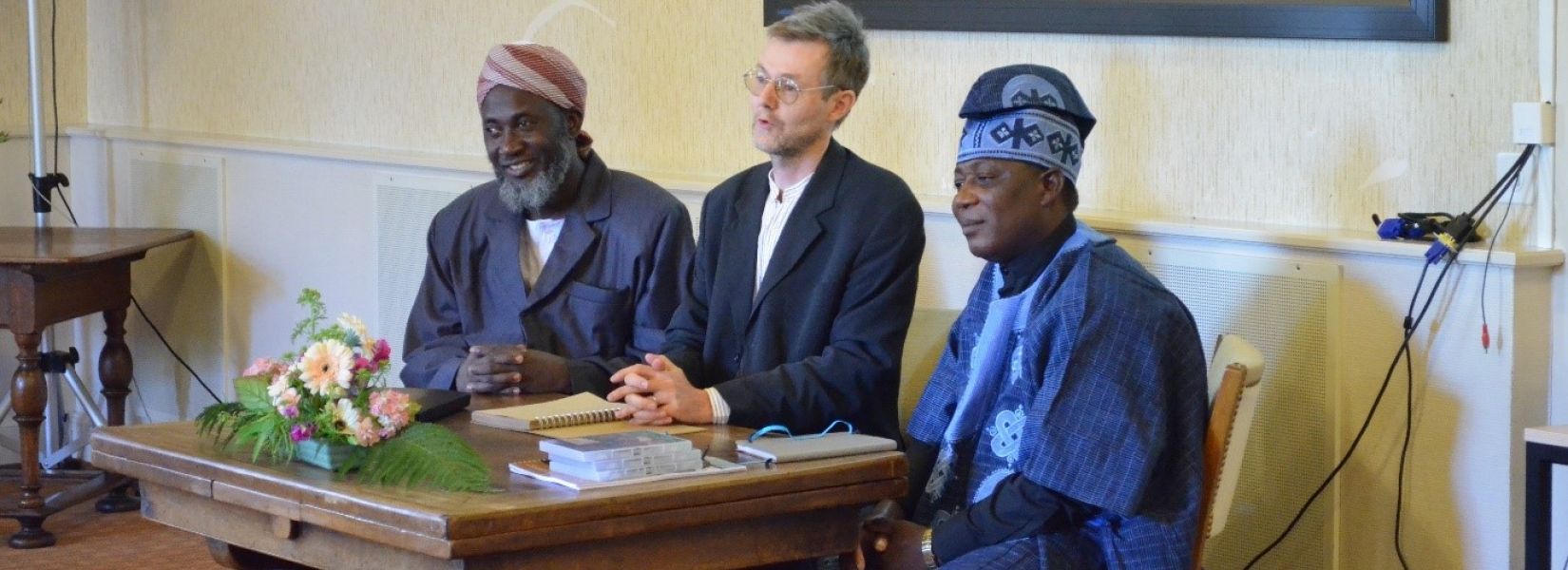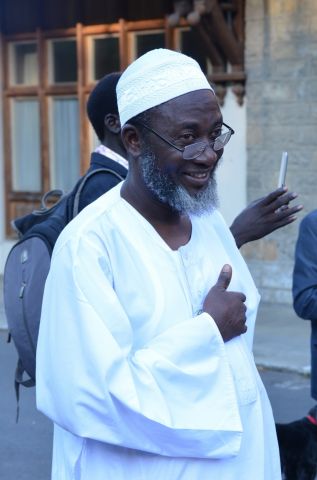The Imam and the Pastor: When enemies learn to trust
18/09/2019
When you meet Pastor James Wuye and Imam Muhammad Ashafa, you would never imagine that this friendly and dynamic duo were once mortal enemies, leading opposing armed militias in their conflict-ridden communities in northern Nigeria. They tell the story of their reconciliation and their journey of trust in the award-winning documentary The Imam and the Pastor and its sequel, An African Answer (FLTfilms).
Their international impact began in Caux, Switzerland in 2004, when British film-maker David Channer decided to make a documentary about their unlikely story. ‘Caux was the place where our activities snowballed into a big ripple,’ explains Pastor Wuye. Both men underestimated the impact that the film would have around the world. It is now translated into 17 languages and has been used to help build bridges in many conflict areas.
Since the shooting of the film, Pastor Wuye and Imam Ashafa have been on what they call ‘a journey of forgiveness and healing across the religious divides’. Recent projects at home in Nigeria include tackling the conflict between pastoralists and settled farmers, which earned them a UN award for Intercultural Mediation in 2017, and a five year TOLERANCE project aimed at training leaders in religious and national coexistence. They were recently appointed advisers to the African Union on how to address corruption and interfaith dialogue.
‘Conquer fear with trust’ – Imam Ashafa
How do two opposite extremes ‘put their energy together to make the world a better place’? It all comes down to building trust. ‘Once trust is built, there is nothing one cannot achieve,’ explains Pastor Wuye, ‘it’s a process of minds, communities and entities coming together to walk towards a better future. If we want to solve the world’s problems today, we must learn to trust.’
’Today, fear is taking over the world because trust is dwindling away,’ warns Imam Ashafa. ‘You can only conquer fear with trust.’ Because they fear their neighbours, people believe that they need more fences, cameras, weapons. On the contrary, Imam Ashafa argues, ‘to feel secure, you need to trust your neighbour’.
‘You need more people around you to achieve greater height,’ says Imam Ashafa, ‘life was not built on the isolation of one person.’ He explains that trust is not about making oneself vulnerable to the other but about ‘creating the ability for the other person to be safe without expecting something in return’. This resonates with the idea of Initiatives of Change that in order to build trust, you need to create a safe space free of judgement, with purity of intention, unselfishness, love and honesty towards your ‘enemy’.
‘Overwhelm with love’ – Pastor Wuye
‘Trust is like giving love,’ says Pastor Wuye. ‘You have to share that love so that you overwhelm the person on the other side to love you by all means.’
‘Trust is about unconditional love to your neighbour,’ agrees Imam Ashafa. He puts his arm around Pastor Wuye’s shoulders and says: ‘Today, I am more protected for having somebody who is not a Muslim, who is not from my tribe, who is not from my culture and with whom I do not share so much in common. Because we trust each other, we have the ability to walk together.’
And what about those who have been failed by those in whom they put their trust? Pastor Wuye’s advice is not to give up: ‘Go after the person because trust is a process you have to build’.
In December 2018, Dr Imam Muhammad Nurayn Ashafa and Dr Pastor James Wuye, co-Executive Directors of the Interfaith Mediation Centre, came to Geneva as speakers at the Centre of Competence on Humanitarian Negotiation (CCHN) annual meeting. On the International Day of Peace, we share their thoughts on the importance of trustbuilding for peace and reconciliation.
Text: Sabrina Thalmann
Video: Sabrina Thalmann, Keerthigan Sivakumar




